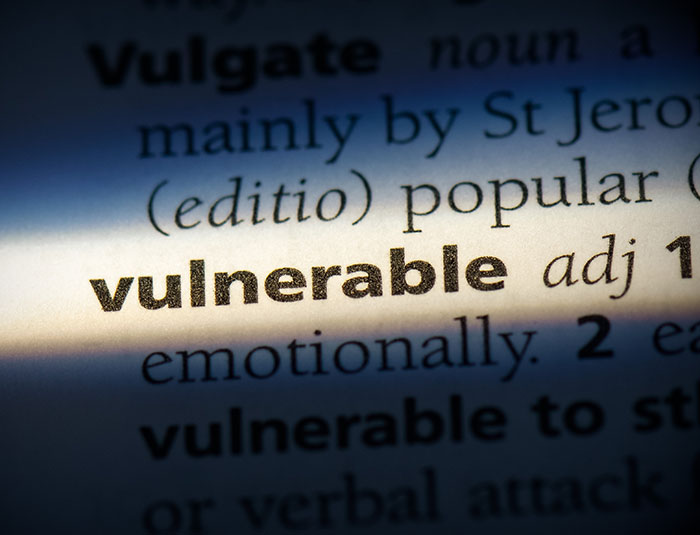
Intro
When teaching trial advocacy I often get confused looks when I talk about the importance of being vulnerable. I understand the confusion. In law school so many of us are taught that as lawyers we need to be detached and objective in order to be effective advocates. While that may be the way to approach analyzing a legal problem, when considering how to effectively present your client’s case at trial the approach has to be different. Effective trial advocacy requires a certain level of vulnerability.
Misconceptions Regarding Vulnerability
When it comes to discussing vulnerability with my students or other lawyers I think their mental roadblocks come from misconceptions about how vulnerability plays into trial advocacy. More than once, I’ve had a student interrupt me and say, “I’m not crying in front of a jury.” So let’s start off with dispensing with the common misconceptions about what it means to be vulnerable as a trial lawyer.
First, incorporating vulnerability into your advocacy does not mean that you have to cry, or behave overly emotionally in front of a jury. Second, vulnerability is not about engaging in a trauma Olympics. It does not require you to overshare aspects of your personal life with the jury. Finally, vulnerability in trial advocacy is not a sign of weakness. We are people, not robots. One reason people don’t like lawyers is because they think we are devoid of emotion. When we do not incorporate vulnerability into our advocacy practices we risk living up to that stereotype.
Vulnerability In Trial Advocacy
From the very inception of a case we have the opportunity to exercise vulnerability. First, whether you are meeting with your client for the first time or reviewing the case file, being able to have empathy is just as important as knowing the applicable law. You also have to be able to have exercise vulnerability when evaluating your case.
So often we allow our egos to get in the way of recognizing the limitations of our case. Sometimes someone has been hurt and there is no legal remedy. On the flip side your client may have caused a harm to which there is no legal defense. Being vulnerable enough to put aside your ego and recognize the strengths and weaknesses in your case will save you and your clients a lot of heartache and expense.
Once you have made the decision to take on a case, vulnerability will play a vital role for the remainder of your case. It is well established that emotions play an integral role in decision-making. From experience we know that storytelling requires the ability to convey emotion and the ability to tell an effective story is an essential trial advocacy skill. Being able to identify the emotions that may be assigned to certain aspects of your case is an exercise in vulnerability.
As human beings, we make sense of the world through stories. So when it comes to your jury, telling an effective story helps them to make sense of the facts of the case and your theory. In addition to assisting the jury in making sense of your case, a good story also maintains the attention of the jury. You cannot tell compelling, suspenseful and engaging stories that are devoid of emotion. Think about the difference between the iconically boring professor from the movie Ferris Bueller’s day off. Could you imagine him in front of a jury? When we tell stories devoid of emotion we risk not only losing the attention of jurors, but we also risk jurors not being able to make sense of our case.
Empathy v. Sympathy
I know what you are probably thinking, isn’t the jury going to be instructed not to consider sympathy and emotions in their decision-making? First, I think it is important to distinguish between empathy and sympathy. Empathy is being able to understand another’s feelings, whereas sympathy is sharing another’s feelings. You can be empathetic without being sympathetic.
Let’s look at how this plays out in practice. I have had the most success during depositions when I allow myself to feel empathy for a truck driver who may have pressures to drive while fatigued. That empathy drives the way I formulate and deliver my questions, which results in the deponent opening up. In order to do so, I draw on my own experiences of times when I felt pressure to work myself to exhaustion. Now, I do not sympathize with the driver. I do not share his feelings. I do not feel sorry for him.
Empathy requires vulnerability.
Conclusion
So while your jury may be instructed that they are not to allow sympathy to influence their verdict, the role of emotions in decision-making is inherent, the role of emotion in storytelling is necessary and being able to incorporate empathy into your advocacy is a must.
For that reason, as a trial lawyer you have to be able to: (1) identify the emotions that may be assigned to the facts, issues, witnesses and parties of your case; and (2) determine what emotion, if any, needs to be assigned to your delivery in order to communicate that emotion to the jury.

